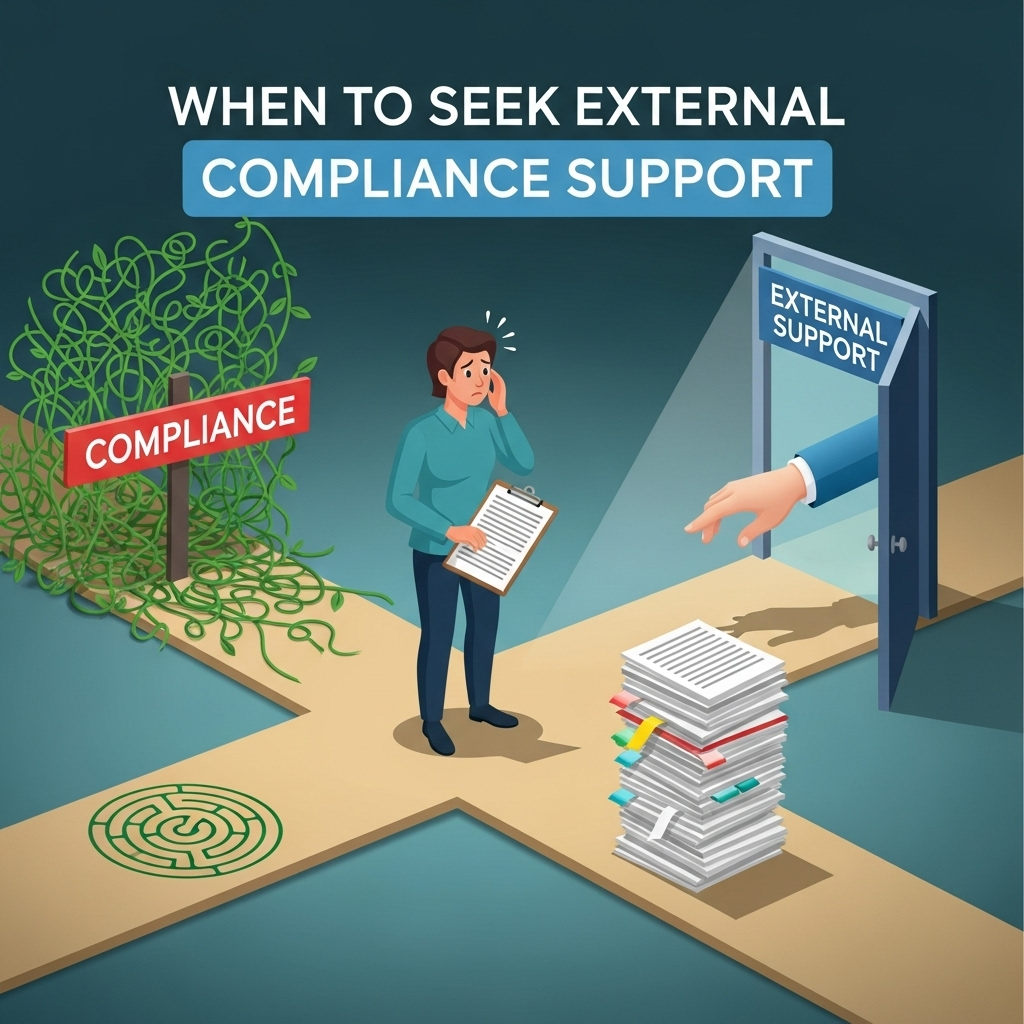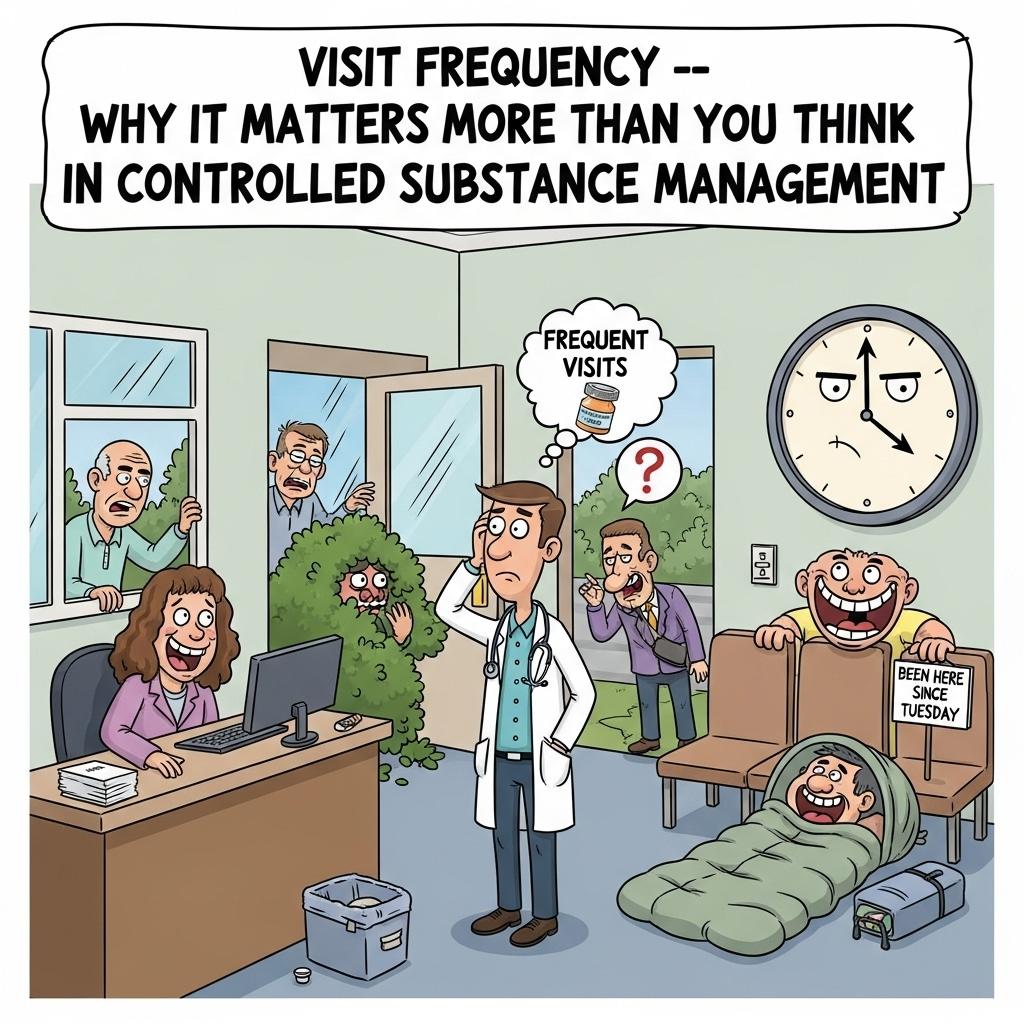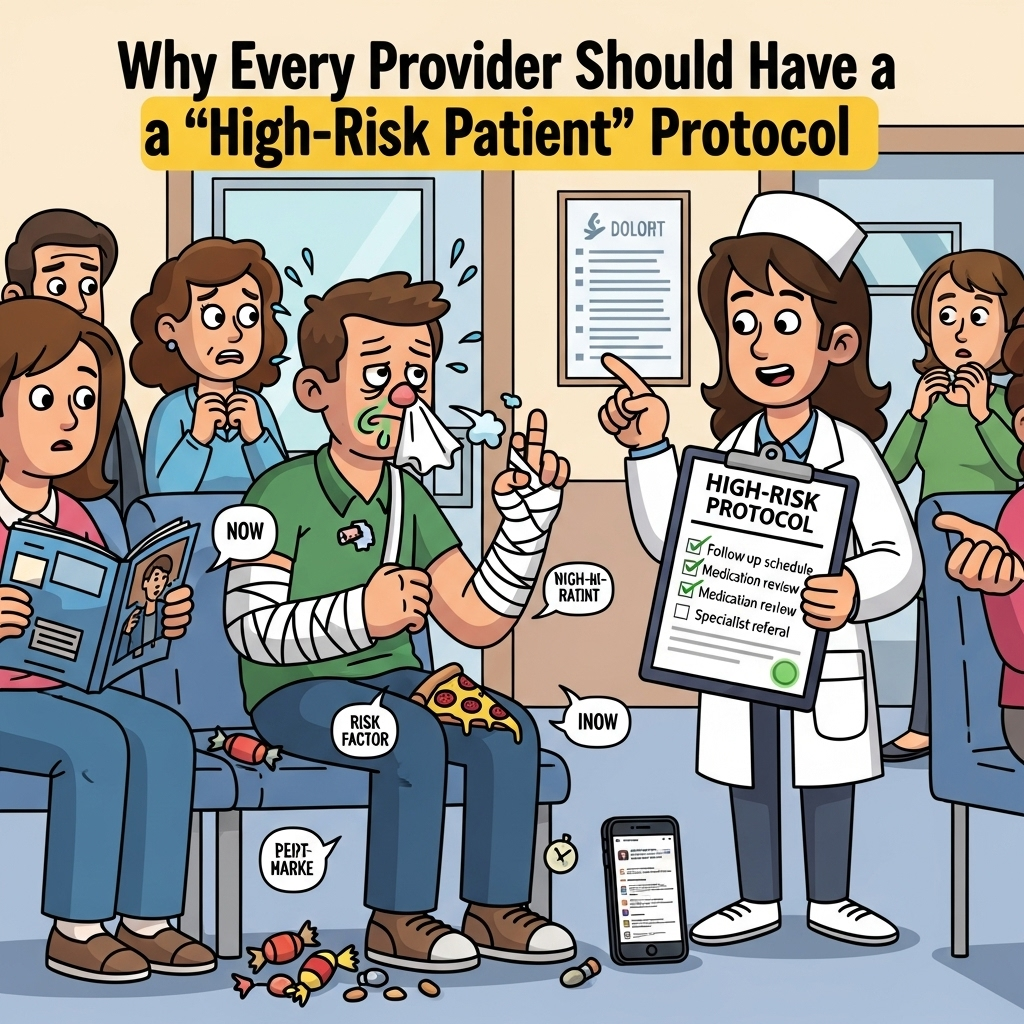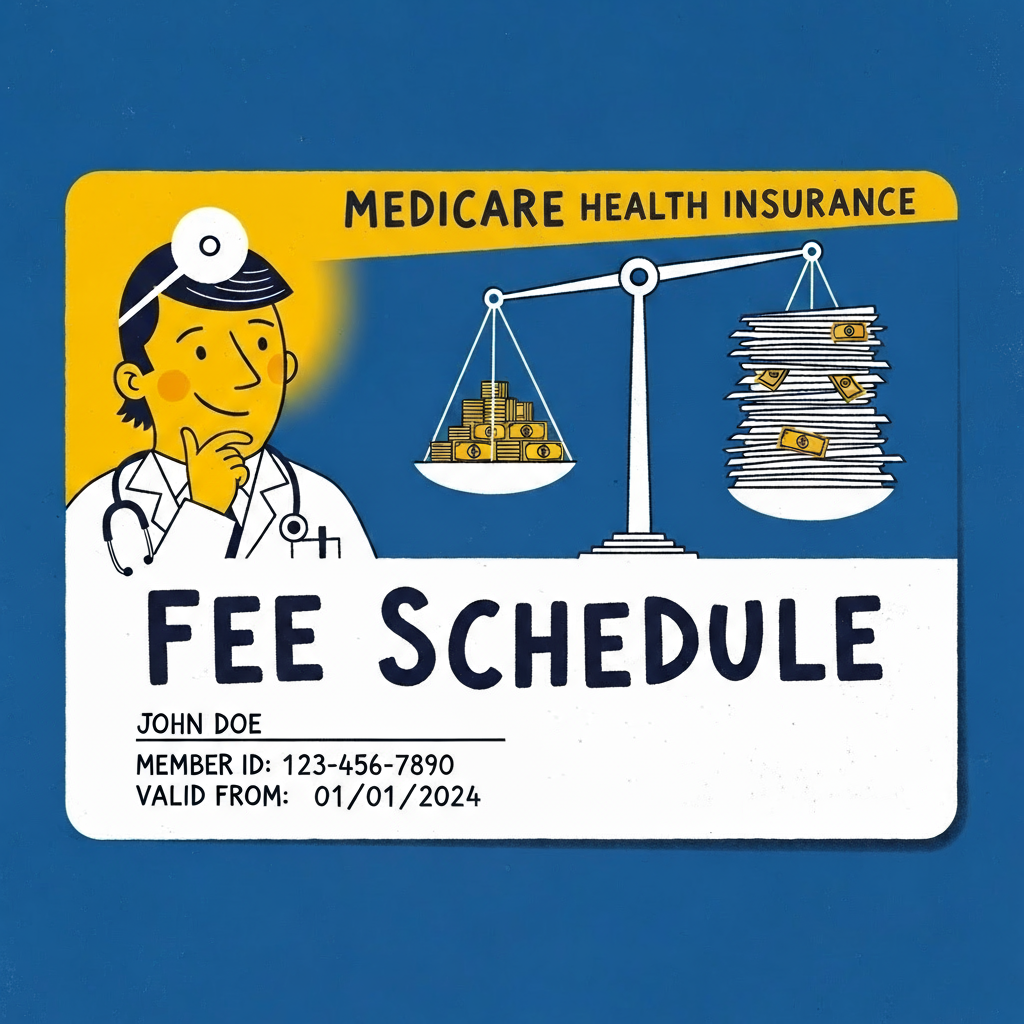Introduction: Knowing When You Need Backup
Most practices try to manage compliance internally—and for many, that works just fine.
But there are moments when the smartest, most cost-effective move is to bring in outside expertise.
External compliance support isn’t a sign of weakness—it’s a sign of leadership recognizing when specialized help is needed.
Signs You Might Need Outside Help
1. You’ve Had a Regulatory Scare
- DEA, state board, or payer audit requests.
- Complaints from patients or other providers about prescribing practices.
2. Your Policies Haven’t Been Updated in Years
- Outdated protocols can create serious risk if laws have changed.
- Leverage the experience of external consultants to benchmark your policies against current standards, industry peers, and regulatory consulting work.
3. You’re Expanding Services or Adding High-Risk Medications
- When offering new services, you’ll encounter new compliance requirements. Therefore, avoid making assumptions about compliance.
4. Internal Resources Are Stretched
- Staff may be too busy to consistently complete monitoring tasks.
- Providers may lack time for detailed policy reviews.
5. You’re Unsure If You’re Meeting Requirements
- “I think we’re compliant” is not a defensible position.
- An external review offers both clarity and peace of mind. It proactively identifies and rectifies issues before state or federal auditors or investigators discover them.
What External Compliance Support Can Do
- Policy and Procedure Review
- Ensure written policies meet current federal, state, and payer requirements.
- Identify gaps that could lead to noncompliance.
- Ensure written policies meet current federal, state, and payer requirements.
- Staff Training
- Provide targeted education on risk mitigation, documentation, and regulatory changes.
- Tailored to your specialty and practice size.
- Provide targeted education on risk mitigation, documentation, and regulatory changes.
- Mock Audits
- Simulate DEA, state board, or payer audits to identify vulnerabilities.
- Offer corrective action plans before real audits occur.
- Simulate DEA, state board, or payer audits to identify vulnerabilities.
- Ongoing Advisory Services
- Keep your practice updated as rules evolve.
- Provide expert input for complex cases or unusual prescribing situations.
- Keep your practice updated as rules evolve.
- Crisis Management
- Assist with response strategies if a complaint, investigation, or audit is already in motion.
- Assist with response strategies if a complaint, investigation, or audit is already in motion.
Benefits of Bringing in Outside Expertise
- Fresh Perspective – External consultants can see blind spots you’ve stopped noticing.
- Specialized Knowledge – Compliance experts track changes in laws, payer rules, and enforcement trends.
- Reduced Risk – Addressing gaps before regulators find them can save significant financial and reputational damage.
- Efficiency – Streamlined processes save time for providers and staff.
Choosing the Right Compliance Partner
- Relevant Experience – Look for consultants who have worked with your specialty and understand your state’s regulations.
- Clear Deliverables – The engagement should outline exactly what will be reviewed and produced.
- Reputation and References – Ask for case examples or references from similar practices.
- Availability – Ensure they can respond promptly to urgent situations.
Final Thoughts: Proactive Is Always Cheaper Than Reactive
External compliance support is like preventative medicine for your practice—it’s an investment in avoiding costly problems down the line.
Waiting until you’re in trouble is almost always more expensive and more stressful.
If you’re asking yourself whether you might need outside help, you probably do.
About the Author
Douglas J. Jorgensen, DO, CPC, FAAO, FACOFP
Dr. Doug is a physician, consultant, and national educator on healthcare compliance, controlled substance prescribing, and organizational risk management. He works with practices nationwide to implement compliance systems that meet the highest standards.



